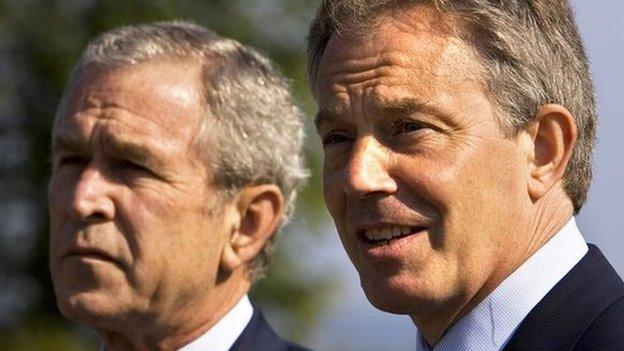Iraq inquiry: Lord Morris says PM could 'pull plug' on Chilcot report
- Published
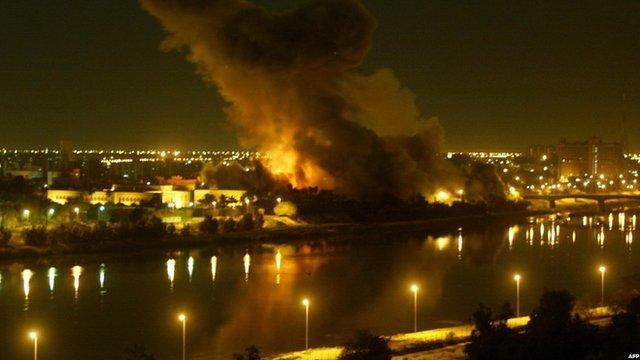
The US-led coalition invaded Iraq in 2003, starting years of guerrilla warfare and instability
Prime Minister David Cameron could step in and "pull the plug" on the Chilcot inquiry into the Iraq war, Tony Blair's former attorney general has said.
Lord Morris of Aberavon said the inquiry committee was a "disgrace" for delaying its report, and parliament could vote to force it to publish.
Chairman Sir John Chilcot has previously written to the PM to say he cannot set a timetable for publication.
The independent inquiry was set up in 2009 and was meant to report in 2011.
Costing £10m to date, it was commissioned by the Labour government under Gordon Brown to investigate the background to UK involvement in the Iraq War, which began when Tony Blair was prime minister in 2003.
Speaking during a visit to Norwich on Friday, Mr Cameron said: "It's frustrating. We want this inquiry finished, it's for the good of the families, it's for the good of the country.
"People want to know the truth, they want this inquiry out, and so do I."
He has previously demanded a timetable for publication be set out "pretty soon".
'Not served well'
British forces lost 179 personnel during the conflict, of whom 136 were killed in action.
Tens of thousands of Iraqi civilians died, and many were also killed later as a result of sectarian attacks and a violent insurgency.
Speaking to BBC Radio 4's Today programme, Lord Morris said families of those killed, and the public, had waited for "an unfair amount of time" for its findings, and were "not served well".
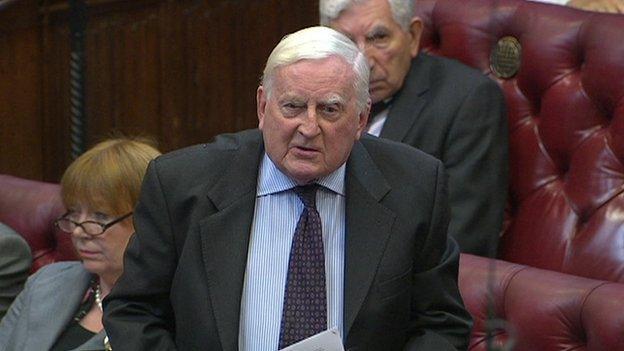
Lord Morris said the Chilcot inquiry committee was a "disgrace" for allowing the report to be delayed by years
He said the prime minister "could pull the plug if parliament gives a decision".
"It's parliament ultimately that is the guardian of independence, if an inquiry of this kind shows no sign of resolving itself.
"The prime minister has said repeatedly he's lost patience, the chancellor has said he's lost patience - but there they are wringing their hands, and parliament hasn't had a debate in months and months on this issue."
'Significant progress'
A spokesman for the Chilcot inquiry told the BBC in a statement that "Sir John and his colleagues understand the anguish of the families of those who lost their lives in the conflict".
He added: "A timetable for the completion of the report will be provided once the Maxwellisation process is complete."
Much of the anger over the delay is focused on the "Maxwellisation" process, which gives the opportunity to individuals facing possible criticism in the report to respond.
Sir John has said he is making "significant progress", but is still awaiting responses.
But Lord Morris, who was chief legal adviser in Tony Blair's first administration from 1997 until 1999, said "Maxwellisation" could not be "elevated as a doctrine to the exclusion of the need of the public to know".
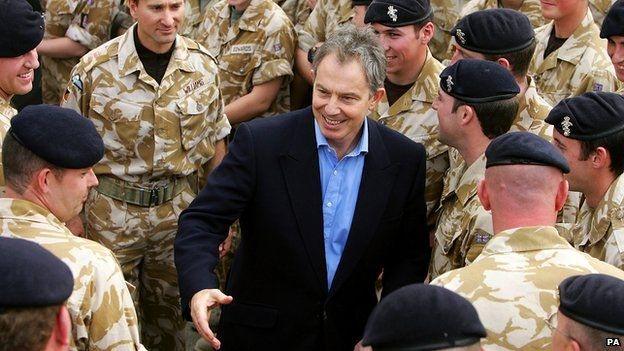
Tony Blair, seen here with British troops in Iraq, gave evidence to the Chilcot inquiry in 2010
Fellow peer Lord Butler, chairman of the 2004 review which found that intelligence used to justify the invasion of Iraq was flawed, warned against rushing the inquiry.
"People have got to have confidence in it that it is right. All reasonable speed is the thing and where people would make a mistake is setting up an artificial timetable," he told the Daily Telegraph, external.
Sir Menzies Campbell, former leader of the Liberal Democrats, said some of his sympathy for the scale of the inquiry's task is "ebbing away".
"It ought, in ideal circumstances, to have been judge-led... supported by trained counsel, capable of presenting and cross-examining evidence," he said.
Sir Menzies also cited the recent judge-led Leveson Inquiry as an example of how to conduct similar proceedings.
"Sir John should give a general indication of when he's likely to publish. I find it very difficult to see why he won't do that.
"He should also tell us... how many people are being subject to the Maxwellisation process.
"He should say to [them], they have a legitimate private interest, no-one would deny that, but there is a legitimate public interest which they ought to observe."
'Gentle pressure'
Lord Owen, former Labour foreign secretary in the 1970s, said the main reason proceedings have taken so long "has been the withholding of evidence which the committee wanted, and had every right to demand, and that was particularly not what President Bush said to Tony Blair, the then prime minister, but what Tony Blair said to Bush".
Former Attorney General Dominic Grieve has told the BBC he disagreed with Lord Morris in calling for a parliamentary vote on the inquiry, to speed up publication.
He also called for "gentle pressure" from Parliament, rather than "shouting on the sidelines".
Chancellor George Osborne has also said the public were "running out of patience" - but in response to a question in parliament he indicated that the government would not step in.
The inquiry was "completely independent of government and we do not determine when it publishes its conclusions", he said.
- Published21 August 2015
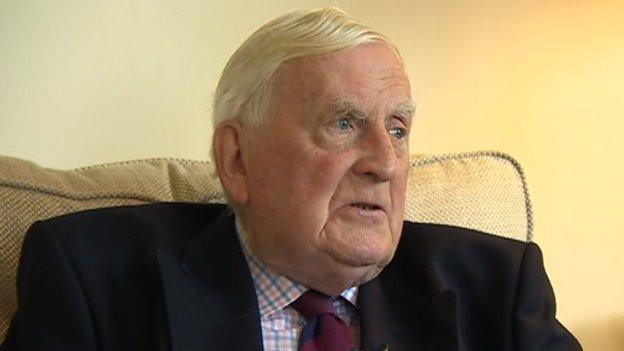
- Published5 August 2015
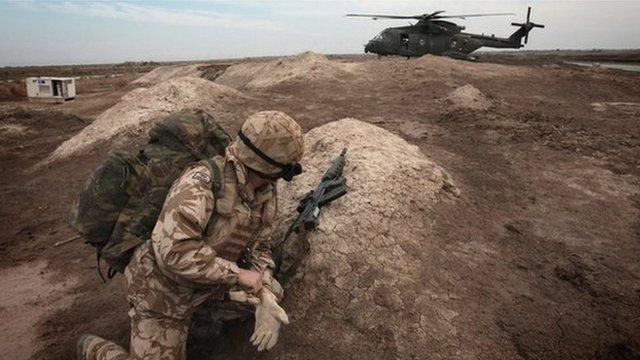
- Published24 July 2015
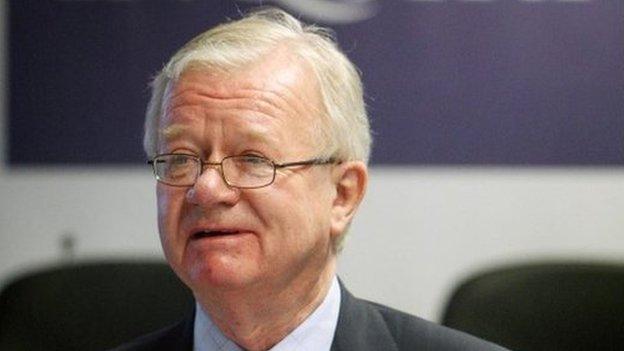
- Published17 June 2015
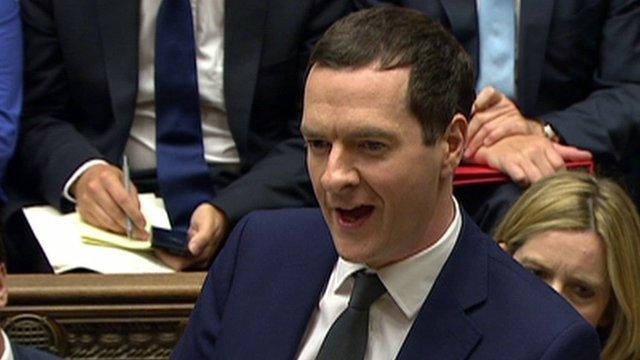
- Published5 July 2016
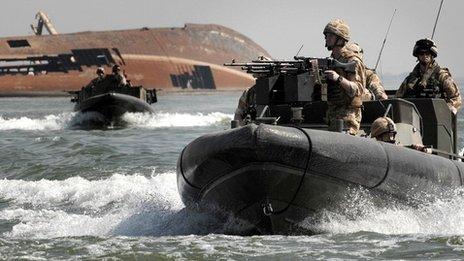
- Published21 August 2015
